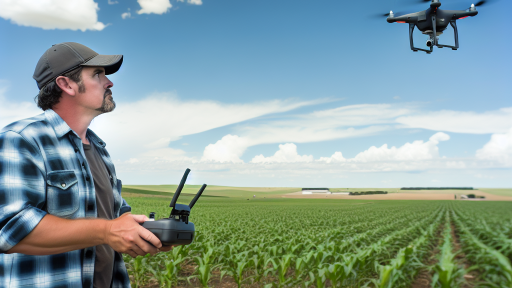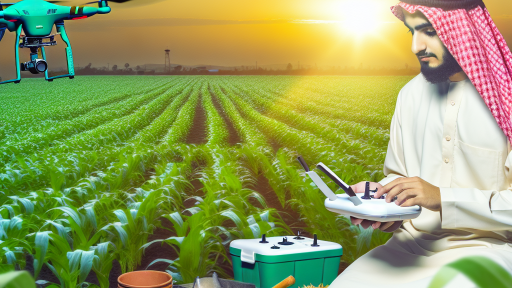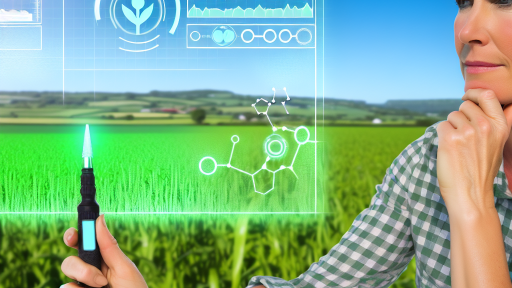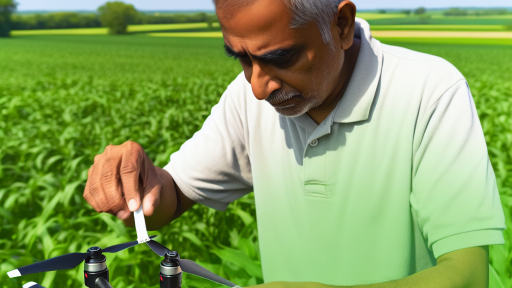Introduction to Supply Chain Challenges in Agriculture
Supply chains in agriculture face numerous challenges.
These challenges impact efficiency and profitability.
First, traceability issues often arise.
Farmers struggle to track their products from farm to table.
This lack of transparency affects consumer trust.
Second, food fraud poses a significant risk.
Counterfeit products harm the reputation of honest farmers.
Moreover, inefficient processes lead to production delays.
Such delays can result in substantial financial losses.
Furthermore, data silos complicate communication across the supply chain.
As a result, stakeholders lack access to essential information.
In addition, unpredictable weather conditions add uncertainty.
Farmers must adapt to these changing circumstances constantly.
Ultimately, these factors hinder the overall success of agricultural businesses.
Consequently, stakeholders must prioritize innovative solutions.
Transform Your Agribusiness
Unlock your farm's potential with expert advice tailored to your needs. Get actionable steps that drive real results.
Get StartedImplementing technological advancements can address these issues effectively.
Blockchain technology offers promising solutions for the agricultural supply chain.
This technology enhances transparency and traceability throughout the process.
Overview of Blockchain Technology
Definition and Functionality
Blockchain technology operates as a decentralized digital ledger.
This system records transactions across multiple computers.
Consequently, it ensures that transactions cannot be altered retroactively.
Each block in the chain contains a list of transactions.
Importantly, once data is added to a block, it is immutable.
Thus, trust and transparency are fundamental benefits of blockchain.
Components of Blockchain
Blockchain consists of various components that work together.
First, nodes refer to computers participating in the network.
These nodes validate and store transaction records.
Second, blocks are units that contain transaction data.
Each block links to the previous one, forming a chain.
Third, miners are individuals or entities validating transactions.
They use computational power to confirm and add blocks.
Types of Blockchain
There are several types of blockchain systems available today.
- Public blockchains are accessible to anyone.
- Private blockchains restrict access to authorized participants.
- Consortium blockchains are governed by a group of organizations.
Each type has unique features suited for different applications.
Applications in Various Industries
Blockchain technology has diverse applications beyond agriculture.
In finance, it enhances security and speeds up transactions.
In supply chain management, it improves traceability of goods.
Healthcare leverages blockchain for secure patient data sharing.
Thus, its versatility makes blockchain a transformative technology.
How Blockchain Enhances Traceability in Agricultural Supply Chains
Understanding Traceability
Traceability involves tracking products through every phase of the supply chain.
Showcase Your Farming Business
Publish your professional farming services profile on our blog for a one-time fee of $200 and reach a dedicated audience of farmers and agribusiness owners.
Publish Your ProfileThis process ensures transparency and accountability.
In agriculture, traceability plays a crucial role in food safety.
Consumers increasingly demand knowledge about food origins.
Blockchain technology addresses these consumer needs effectively.
How Blockchain Works for Traceability
Blockchain provides a secure and immutable record of transactions.
Every participant in the supply chain can access this information.
Farmers input data about production into the blockchain.
Transporters log information at each stage of shipment.
Retailers can then verify the product’s journey easily.
Key Benefits of Blockchain for Traceability
- Enhanced transparency increases consumer trust.
- Quick access to product history aids in rapid recalls.
- Integration of smart contracts automates verification processes.
All these factors contribute to more efficient supply chains.
Real-World Applications
Several companies successfully implement blockchain for traceability.
For instance, AgriDigital streamlines grain transactions.
They utilize blockchain to record contracts, transfers, and payments.
Similarly, IBM Food Trust enhances food safety through traceability.
They allow stakeholders to trace products from farm to table.
Challenges and Considerations
Adopting blockchain may pose initial implementation challenges.
Organizations must invest in technology and training.
The integration of existing systems with blockchain can be complex.
However, the long-term benefits often outweigh these challenges.
Discover More: Blockchain Solutions For Efficient Data Management In Farming
Smart Contracts: Automating Agreements in Agriculture Supply Chains
Understanding Smart Contracts
Smart contracts are self-executing agreements on a blockchain.
They automatically enforce and execute terms based on predefined conditions.
This technology minimizes the need for intermediaries in transactions.
Benefits of Smart Contracts in Agriculture
Smart contracts enhance transparency in the supply chain.
They provide real-time tracking of agricultural products.
Moreover, they reduce paperwork and administrative costs.
As a result, farmers can focus more on production.
Implementation Steps
First, stakeholders must identify contract needs within the supply chain.
Next, they should select a suitable blockchain platform.
After that, the smart contract code must be developed and tested.
Finally, stakeholders can deploy the smart contracts to execute agreements.
Real-World Applications
Many companies are already leveraging smart contracts in agriculture.
For example, GrainChain automates grain transactions.
This platform ensures that payments are made instantly upon delivery.
Similarly, AgriDigital offers a solution for managing grain supply chains.
Future Outlook
The future of smart contracts in agriculture looks promising.
As technology evolves, efficiency will improve further.
Moreover, more farmers will adopt blockchain solutions globally.
Smart contracts will revolutionize the agriculture supply chain.
Explore Further: The Future Of Farming: Embracing Agri-Fintech For Long-Term Success
Showcase Your Farming Business
Publish your professional farming services profile on our blog for a one-time fee of $200 and reach a dedicated audience of farmers and agribusiness owners.
Publish Your ProfileImproving Data Integrity and Transparency with Blockchain
Understanding Blockchain Technology
Blockchain technology offers unmatched data integrity in supply chains.
It securely records transactions across multiple locations.
As a result, data is less susceptible to tampering or fraud.
Enhancing Traceability in Agriculture
Blockchain provides detailed tracking of agricultural products.
Every stage of the supply chain records information on the blockchain.
This includes data from farms, processors, and retailers.
End consumers benefit from knowing the product’s origin.
Consequently, trust between consumers and producers strengthens.
Ensuring Compliance and Regulation
Blockchain can simplify compliance with regulatory requirements.
It maintains a transparent and immutable record of transactions.
This transparency aids auditors during inspections and assessments.
Moreover, it reduces the time and cost of compliance efforts.
Building Trust Among Stakeholders
Blockchain fosters trust among all supply chain participants.
Due to its transparency, farmers, suppliers, and consumers connect better.
Trust leads to stronger relationships and improved collaborations.
This cohesion encourages higher quality products and services.
Mitigating Risk and Fraud
Blockchain significantly reduces the risk of fraud in agriculture.
It enables immediate identification of discrepancies in records.
Furthermore, timely responses to issues can prevent larger problems.
This ultimately boosts supply chain efficiency and resilience.
Enhanced Data Integrity and Supply Chain Reliability
Incorporating blockchain into agriculture enhances data integrity.
This transformation contributes to a more transparent and reliable supply chain.
Consequently, stakeholders can make informed decisions with confidence.
Learn More: Using Blockchain For Enhanced Record Keeping In Agricultural Operations
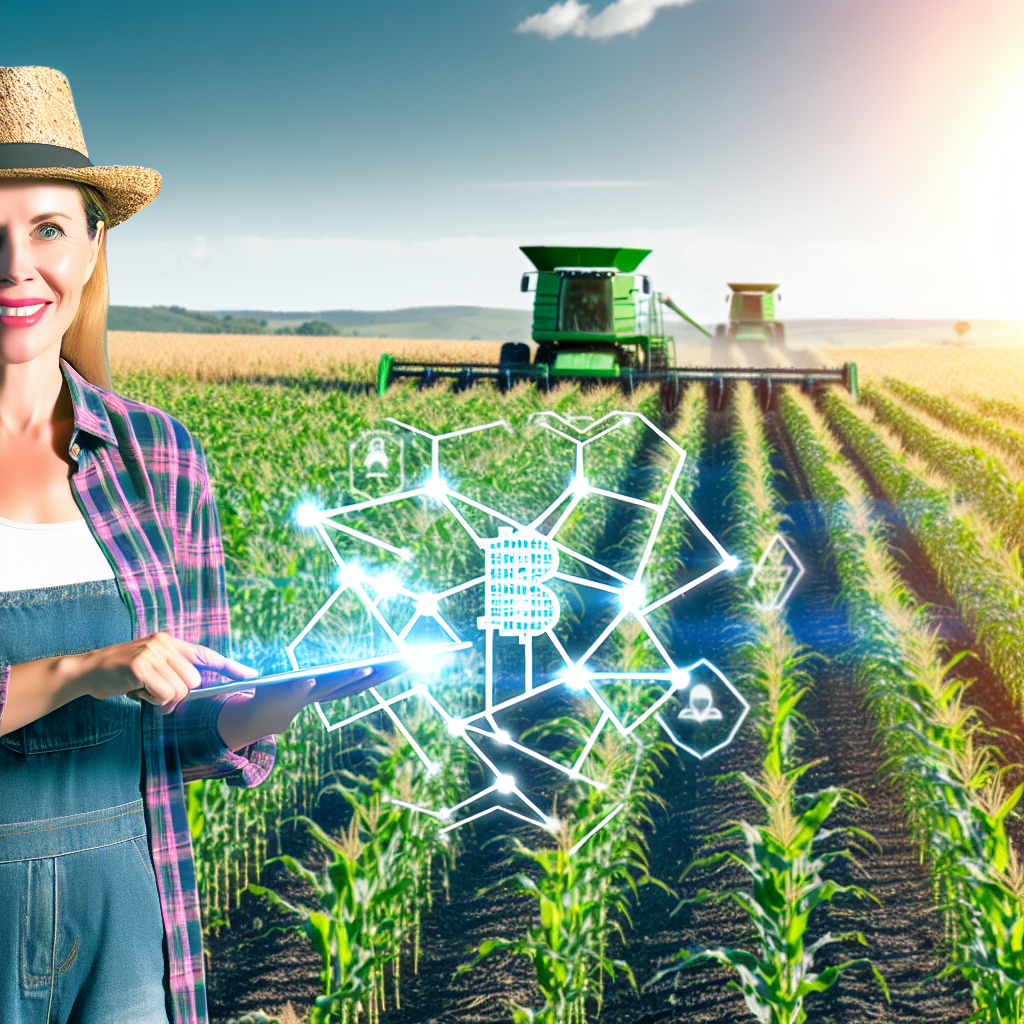
Case Studies: Successful Implementations of Blockchain in Agriculture
Enhancing Traceability at Farm Fresh Produce
Farm Fresh Produce implemented blockchain to improve traceability.
This initiative allowed consumers to track their food’s origin.
They developed a user-friendly mobile app for this purpose.
The app connects users directly to farmers via QR codes.
As a result, customers gain confidence in food safety.
Additionally, farmers can manage their inventory more effectively.
Supply Chain Optimization with AgriBlockchain
AgriBlockchain introduced a decentralized platform for farmers.
This platform streamlines transactions between suppliers and producers.
It significantly reduces delays in the supply chain.
In turn, this boosts overall efficiency and lowers costs.
The system also tracks transactions transparently through smart contracts.
Consumers benefit from reduced prices and faster deliveries.
Improving Fair Trade with Green Farm Network
The Green Farm Network uses blockchain to support fair trade principles.
Farmers can securely record their sales and prices received.
Consequently, they establish trust within international markets.
This technology helps ensure fair payment for their products.
Showcase Your Farming Business
Publish your professional farming services profile on our blog for a one-time fee of $200 and reach a dedicated audience of farmers and agribusiness owners.
Publish Your ProfileThe network connects farmers directly with consumers across the globe.
Overall, this increases profitability for farmers and transparency for buyers.
Tracking Sustainability Efforts with EcoCycle
EcoCycle developed a blockchain solution to monitor sustainable practices.
This initiative gathers data on resource use in real-time.
Farmers can showcase their commitment to sustainability effectively.
This information helps consumers make eco-friendly choices.
Moreover, EcoCycle creates incentives for sustainable farming practices.
The transparency it offers enhances the credibility of agri-products.
Blockchain Integration in Logistics with CropTech
CropTech partnered with logistics companies to use blockchain.
This integration addresses challenges in agricultural logistics.
Through the system, all parties can track shipment status instantly.
Farmers can reduce losses due to spoilage during transport.
This tracking capability promotes product quality and freshness.
Consequently, consumers receive higher-quality produce with decreased waste.
Find Out More: Integrated Pest Management Strategies with Modern Technology
Potential Barriers to Adoption of Blockchain in Agriculture
Understanding the Technology Gap
Many agricultural professionals lack a clear understanding of blockchain technology.
This gap hinders the adoption of blockchain solutions in their operations.
Furthermore, training programs on blockchain are often scarce.
As a result, producers may feel overwhelmed by the technology.
Cost and Investment Concerns
The initial costs associated with implementing blockchain can be significant.
Many farmers are hesitant to invest in new technologies.
In addition, ongoing maintenance costs may also deter adoption.
Farmers often prioritize immediate financial returns over long-term investments.
Regulatory Challenges
Current regulations may not fully support blockchain implementation.
Regulatory uncertainty creates hesitation among potential adopters.
Moreover, compliance with diverse agricultural regulations can be complex.
This complexity often discourages farmers from utilizing blockchain.
Integration with Existing Systems
Integrating blockchain with existing supply chain systems presents challenges.
Legacy systems may not be compatible with new technology.
Additionally, data silos often complicate the sharing of information.
Farmers may face disruptions while trying to achieve integration.
Trust and Collaboration Concerns
Building trust among stakeholders is vital for blockchain success.
However, some participants in the supply chain may resist sharing data.
Concerns about transparency and security may arise as well.
These collaborative challenges can stall blockchain initiatives.
Cultural Resistance to Change
Many farmers have long-standing practices that work for them.
As a result, they may be resistant to adopting new technologies.
Change management strategies are often needed to facilitate adoption.
Furthermore, a lack of peer support can further discourage innovation.
Future Trends: The Role of Blockchain in Sustainable Agriculture
Enhancing Transparency and Traceability
Blockchain technology significantly improves transparency in agriculture.
Showcase Your Farming Business
Publish your professional farming services profile on our blog for a one-time fee of $200 and reach a dedicated audience of farmers and agribusiness owners.
Publish Your ProfileThis increase in transparency benefits consumers and producers alike.
Farmers can track their products from farm to table efficiently.
Additionally, this traceability helps in identifying origins and processes.
Consumers gain confidence in the quality of their food products.
Reducing Food Waste
Blockchain can help minimize food waste in the supply chain.
It offers real-time data to producers about demand fluctuations.
Producers can adjust their output accordingly to meet needs.
This adaptability prevents surplus production and waste generation.
Moreover, it allows for efficient redistribution of surplus food.
Boosting Sustainability Practices
Blockchain encourages the adoption of sustainable farming methods.
Farmers can share sustainable practices through the blockchain network.
Collaboration among farmers leads to shared knowledge and resources.
This approach fosters a community committed to sustainable agriculture.
Benefits to the environment and ecosystems become more accessible.
Building Trust with Consumers
Blockchain creates a trust framework between consumers and producers.
It provides consumers with verified information about products.
Consumers can see how products were grown and handled.
This insight strengthens consumer loyalty towards brands that prioritize safety.
Furthermore, it enhances the reputation of compliant farms and brands.
Facilitating Access to Financing
Blockchain can simplify access to financing for farmers.
Smart contracts automate loan processes and reduce paperwork.
This efficiency encourages investments in sustainable practices.
Farmers can secure funding based on transparent records of productivity.
This financial support ultimately drives innovation in agriculture.
Additional Resources
U.S. Compendium of SFS Actions | Home
Agriculture and Food Tech – FedEx Institute of Technology – The …

